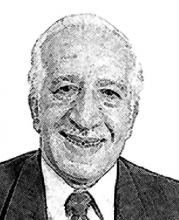You are here
Fall of Ramadi could have wider regional ramifications
May 23,2015 - Last updated at May 23,2015
The fall of Ramadi will have an impact on Jordan as well, not only on Iraq.
It is not a tactical setback but a major defeat of the Baghdad Shiite hierarchy that, for sectarian reasons, refused to arm the Ramadi Sunni tribes, leaving them to face an enemy with superior weapons and modern American tanks.
The Iraqi defence minister is imploring both Moscow and Washington to supply him with anti-tank missiles and Apache helicopters to enable his demoralised army to face Daesh.
His appeal to the Shiite Popular Mobilisation Units (Hashd Shaabi) to fight the battle to regain Ramadi is counterproductive, since it will accentuate the sectarian divide and force more Sunnis to join Daesh, fearing that Hashd will practise the same pillage and atrocities it had committed in Tikrit earlier.
The Sunni-Shiite confrontation is bound to cross over into Jordan, which accommodates nearly 300,000 Iraqis who have been living and working here since the fall of Baghdad in April 2003.
Representatives of Iraqi Sunnis, including deputy prime minister Saleh Al Mutlaq, are urging Jordan to assume its traditional regional role and help the Ramadi and Anbar tribes to master modern weaponry and sophisticated equipment to fight the 40,000-strong Daesh terrorists.
With Daesh in control of key border posts between Iraq and Jordan, between Saudi Arabia and Baghdad or between Syria and Iraq, it is high time for a coordinated effort between Riyadh and Amman to formulate a common strategy to defeat the terrorist threat embodied in Daesh.
The Iraq government has its 19th battalion army soldiers stationed in Baghdad to defend the capital.
But the soldiers are too demoralised, underpaid and weak to liberate Ramadi now or Mosul later.
One of the options that Iraqi Prime Minister Haider Al Abadi has within reach is to ask some Arab states to loan him Apache helicopters that can easily neutralise Daesh’s tanks and armour.
More than one Arab capital is willing to contribute its share in fighting a common enemy called Daesh.
Moreover, some Islamic capitals, following the fall of Palmyra, are willing to shoulder their responsibility in helping Abadi to honour his last February promise to defeat Daesh in Mosul.
Procrastination and lack of resolve characterise the strategy envisioned to defeat Daesh, which manipulated the time element to expand to more oil-rich grounds and to enlist more international jihadist recruits.













